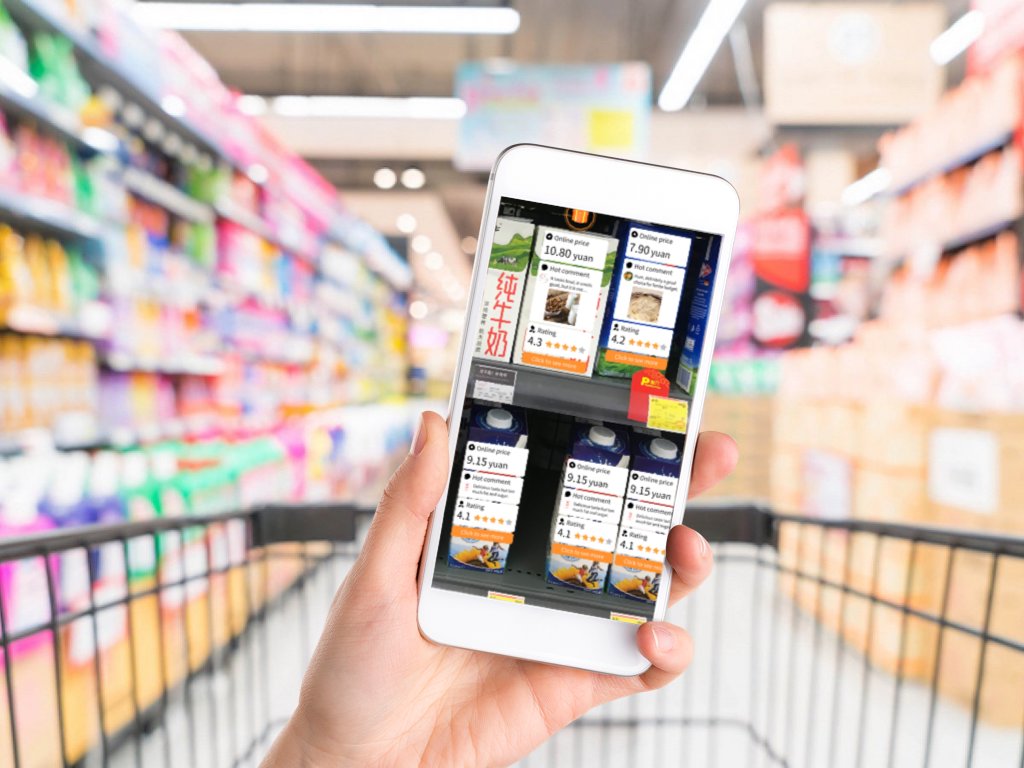3 Mins Read
Chinese startup Coolhobo recently launched Hobose, an augmented reality app that acts as a tool for consumers to understand which food products to put in their shopping basket. Users will be given “traffic light guidance” when they point their phone camera to certain items from grocery store shelves, all based on the data that individuals’ input into the platform, from dietary preferences to nutritional needs and allergens. The launch of the app comes as personalisation is fast becoming a hot topic in the health and nutrition space, from “smart” food to optimised surroundings.
Unveiled in February this year by Shenzhen-based tech startup Coolhobo, Hobose is a mobile app that gives users personalised information on food products and guidance on whether items meet their dietary needs and requirements. The app runs on augmented reality technology, and users need to input their dietary preferences, nutritional levels, tolerance to additives and allergens.
When users point their phone camera to consumer food products in stores, Hobose will use a traffic light system to indicate whether the item is suited to their individual needs. A green light is designated for products that are nutritionally suited to the particular user, while a red light will indicate otherwise and additionally provide the specific ingredients that are harmful.
The launch of Hobose comes as the personalisation of nutrition and dietary advice is become a key feature of the health and wellness industry with consumers expecting a tailored solution. Science also backs this up: research has documented the extent to which individuals are unique from one another – from varied gut microbiomes to our differentiated response to food. Experts are therefore understanding that there is no “one-size-fits-all” approach to food, and are developing ways to customise our dietary choices for optimal health and well-being.
Like Coolhobo, major United States supermarket chain Kroger is riding this trend and is now testing a “food prescription” program where in-store nutritionists help individual customers fulfil their dietary recommendations from doctors. Kroger’s program also comes with a similar app, where food is scored based on nutritional value, and users can track their individual progress.
Other startups are using different ways to personalise food with improving customers’ health in mind. Japanese startup Open Meals, for instance, is now smartifying food by 3D-printing sushi that has been injected with nutrients that individual diners need, based on their biometric and genomic data provided in a blood test prior to their visit.
Meanwhile, Singapore-based Alchemy FoodTech is using medical and biotechnology to lower the glycemic index (GI) of staple foods such as white rice, flour and bread to fight the growing diabetes epidemic in the city-state. Their proprietary product, Alchemy Fibre, will also increase the fibre content of foods by up to 50%.
Outside of the nutrition world, individual customisation is being popularised in the study of our environmental surroundings, and how slight variations can impact our health. Otherwise known as “exposomics”, it involves examining how all health-relevant environmental factors such daily weather patterns, air pollution levels, light exposure and noise levels can affect our personal well-being.
Lead image courtesy of Coolhobo / Freepik / Free Vectors / compiled by Green Queen Media.




